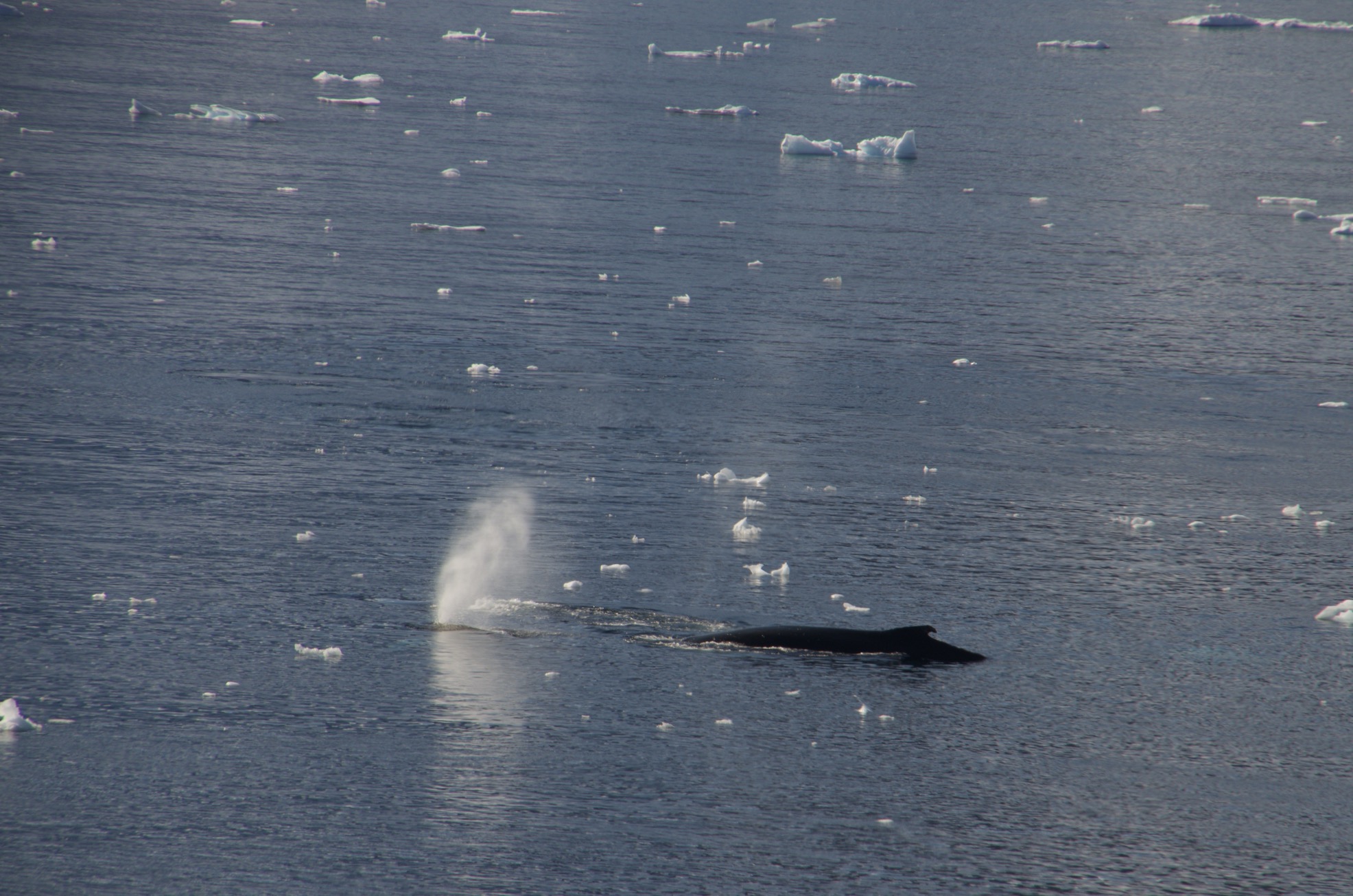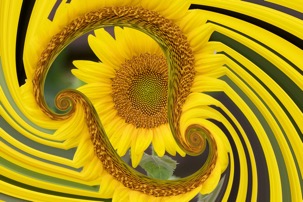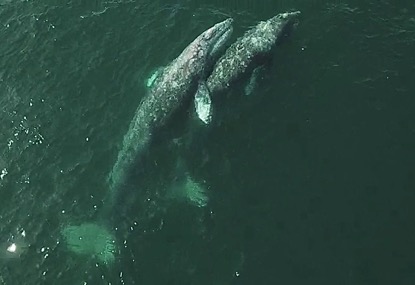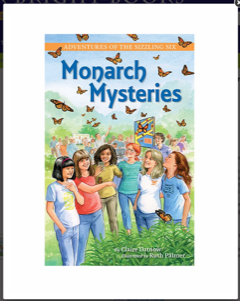YA Eco Mysteries, Memoirs, Novels & Travel
If Whales Could Talk
If Whales Could Talk
Human: Oh, Whale, we love to watch you
Spouting and spy hopping!
Gray Whale: Watching without knowing is not enough.
Human: Oh, Whale tell us what to know.
Gray Whale: Monsters bash us, floating trash chokes us, melting ice kills our food,
slithering snakes snare us.
Human: Oh, whale can you ever forgive us for what we have done?
Whale: Only if you stop the slaughter.
Excerpt from The Gray Whale’s Lament: An Eco Adventure

We are ancient. We are weathered. We appeared 50 million years ago, long before the first humans. We live in the world’s oceans from the Arctic and Antarctic to the tropical seas around the equator. We are many times larger than any human. They call us mammals, like them. To them we are also monsters of the deep. A few of us have lived for 200 hundred years. Our bodies are scared with messages for humans to decipher. We conserve life on this planet by capturing carbon from the atmosphere. We are beacons of hope for the future.
But something has gone wrong. Dead whales have begun washing ashore. I, Natsilane, one of the dead, will speak on their behalf. We mourn the deaths of each member of our family struck by ships, tangled in fishing nets, suffocated by oil and chemical spills, choked by plastic pollution, and starved because of climate change. Some humans enjoy whale watching. They take photos of whales, ignoring our scars, our thinning sides, the spine bones sticking out on our backs. When humans do pause to look at us—really look at us—it is with wonder or pity.
There are so many novels about whales for young readers and for the young at heart. The stories I enjoy most the ones that entertain, intrigue, and educate me. To quote the author of Moby Dick. “Ignorance is the parent of fear.”—Herman Melvin
My short list of books about whales I have read:
Song for a Whale by Lynne Kelly
The Whale Caller by Makes Mda (adult)
People of the Whale: A Novel by Linda Hogan (adult)
The Whale Rider by Witi Ihimaera (adult)
Ice Whale by Jean Craighead George
A Whale of the Wild by Rosanne Parry
My short list of Non fiction:
Fathoms: The World in the Whale by Rebecca Giggss
Spying on Whales by Nick Pyenson
Books I want to read:
Whalefall a novel by Daniel Kraus
No More Fairy Tales: Stories to Save our Planet by Kim Stanley Robinson, Paolo Bacigalupi et. Al.
The Winds of Change are Calling
In a world where the gale force winds of change are driving hurricanes, tornadoes, droughts, floods and forests fires, I ask myself: what can I do to make a difference no matter how small? As a writer, I have chosen to dedicate myself to weaving stories that will, hopefully, inspire the children of tomorrow to shape a brighter future.
After decades of misinformation, denial, and inadequate attempts to reduce the dire impact of environmental destruction, young people around the world are troubled, angry, and frustrated. They are searching for ways to understand and to take action.
The epiphany that inspired me to begin writing Eco-mysteries struck me one morning driving to work down the road winding through a wooded hillside. As I approached the bottom of the hill, I yelled out loud, “How dare they!” Overnight, a swath of naked red dirt had replaced a verdant forest. A forest of oak, hickory, poplar, and pine, which had sheltered and sustained a rich diversity of life, had been bulldozed to a barren patch of clay, leaving one ancient white oak, standing like a beacon of hope.
After that aha moment, whenever I drove by the oak it kept calling to me to share its sad tale. I imagined the oak, which I named Alba Maizie, telling its story to the neighborhood’s children. Nine months later, The Adventures of The Sizzling Six: The Lone Tree became the first Eco-mystery, which blossom into a series of nine books published over the past decade.
Woven into this story about six feisty girls determined to save their white oak, is a serious theme. Over half of the tropical forests worldwide have been destroyed since the 1960s, and every second more than one hectare of tropical forests is lost, according to the International Union for Conservation of Nature (IUCN). The loss of forests threatens the survival of many species, including humans, and reduces the ability of forests to sustain clean air and water.
Yet, all is not yet lost. Science-based solutions, such as forest restoration, can reduce the worst effects of deforestation and recover the ecological, social, climatic and economic benefits of our forests. That is why I apply scientific knowledge to create plausible and hopeful but realistic endings for my stories rather than gloomy or magical fairytale ones. A caveat: as environmental writers we have a responsibility to thoroughly research the scientific underpinnings of our stories. Pseudoscientific claims that appeal to ingrained fears and long-standing beliefs can become widely accepted, hampering action to reduce the harmful effects of climate change.
Following The Lone Tree, I created stories for The Sizzling Six series woven around North America’s disappearing species. My focus widened to the international sphere with The Case of the Missing Piping Plovers, which chronicled the exciting discovery of the winter nesting grounds of Piping Plovers on a remote coral reef in the Bahamas. Vanishing Birds, slated for publication in the fall of 2023, I expanded my stories to include the entire length of the Atlantic migratory flyway from Baffin Bay in the Arctic to Tierra Del Fuego, the southernmost point of South America.
Recently I completed the first book of a trilogy, Red Flag Warning, on climate change, broadening the stories to global issues impacting us worldwide. Currently, I am working on The Gray Whale’s Lament, the second book in the trilogy.
Now, more than ever, we citizens need who understand that what happens in distant places on our planet may impact what’s our country. Although we should never sugarcoat the truth, we can all do our part, no matter how small, to make the world a better place for future generations.
x
The Last Whaling Station
The Last Whaling Station Point San Pueblo California
A Visit to the Setting of the Story
Reality met the setting I imagined on my trip to the Last Whaling in the US, San Pueblo Point, East Bay California. This is an excerpt from The Gray Whale's Lament after my trip.
Chapter 8. The Last Whaling Station
They drove on the freeway through heavy traffic and then across the long, roller coaster-like San Rafael Bridge. Nearing their destination at Point Molate Naval Base, they passed an old air raid shelter with castle-like brown brick walls covered in vines.
Searching the internet Sarah exclaimed, “Mom, this is so interesting . . . did you know that Native Americans fished right here for centuries, and that in the late 1800s it was a Chinese shrimp camp?”
“I knew about the shrimp camp and of course there were native Americans living here long before us. Their ancestors still live around this place. If we dig in the earth we might find shards of their pottery, the shells of the mussels, and the bones fish they ate.”
“Ooh, that gives me goose bumps.” Sarah shivered.
At Point San Pablo, the road had been blocked by security guards, so they turned right at a fork, winding around a hill. Noticing that her mother was clutching the steering wheel so tightly her knuckles were white, Sarah asked, “Mom, what’s wrong?”
“This is where your Grandmother Rose took the picture of the whaling station,” she replied.
“Stop, Mom! I want to take a picture at this spot,” Sarah said.
Bumping off the road, they parked on a grassy shoulder. Then the two hiked to the top of the hill.
“Is that where the whales were killed?” Sarah asked, pointing across the bay.
“Yes.” Her mother sighed. Standing shoulder to shoulder they listened to the wind rustling through the golden, dry grass at their feet. The wind picked up, flattening the grass, and howling across the waves.
Sarah shivered. “It sounds like the ghosts of long ago still haunt this place.”
Her mother squeezed her hand. “It’s okay to remember the past,” she said, dabbing away tears. “Even upsetting memories can motivate you to do something worthwhile.”
Sarah began snapping pictures. “Still, it’s peaceful here. It’s hard to believe this bay was home to the last active whaling station where whales were slaughtered in the US.”
***
Ramp for Dragging whales into the Whaling Station
Finally, they pulled into the parking lot, hidden around a bend at the end of the road, at Point San Pablo Yacht Harbor.
With the Chummy at her heels and binoculars in hand, Sarah tumbled out of the car. Pulling out her mobile phone, she snapped photos of houseboats, and floating homes that lined the bay.
Houseboats San Pueblo Point, East Bay California
She couldn’t resist taking a picture of the funky, oversized sculpture of an alligator with jaws wide open.
Oversized Sculpture of an Alligator, San Pueblo Hatch Club
Even the historic old shacks and rusting machinery made interesting pictures. As they walked by, the harbor master waved and called out, “Don’t forget to visit the farm with goats and order something to eat at the restaurant.”
They came to the pebbly beach where a sign that read: OK for launching kayaks, canoes, etc. Chummy trotted along the beach stopping to sniff at invisible scents. Her mother rubbed her forehead, “It’s changed since I was here years ago.”
“I can’t see the old whaling station,” Sarah said, looking through her binoculars.
“We need to drive to the North side of the point where we can see across the bay to the remains of the whaling station.”
They got back in the car and within minutes they arrived at the point. Chummy leapt out of the car and began to bark, “Be quiet!” Sarah command her dog to stop him from barking at the elephant seals rumbling contentedly while sunning themselves on the rocks. She could make see the blackened wooden posts, which had supported the pier and the gangplank up to the factory. Her mother had been right, there was nothing to tell of the horror that had happened here. No witness to how ruthlessly the whales had been slaughtered.
Chocking back curse words she hissed, “Nasty, stupid—.”
Just then Chummy began yipping. She turned and saw her dog digging furiously at something half-buried in the sand.
“Chummy, come here,” Sarah called. The dog raced toward her, then turned back to continue digging, sending sand flying.
“What have you got there, boy?” Sarah strode over to Chummy. It appeared to be blue plastic bottle cap sticking out of the sand. Getting down on her knees, she rocked the bottle loose. She brushed off the sand she held it up to the light. It was an ordinary plastic water bottle with a roll of paper inside. There was also a plastic bag with something tiny curled inside. Peering more closely she could make out what appeared to be tiny black eye in a white face and a curled body. The image of the fetus in her dream flared in her mind. She dropped the bottle as if it were a scorpion readying to sting her.
“Calm down. It’s just a bottle with a plastic bag and some junk inside it. Nothing to be afraid of.”
“What is it?” Sarah asked, her breath catching in her throat.
“I can’t tell for sure,” her mother said. “Maybe it’s a message or treasure from a castaway pirate stranded on a deserted tropical island,” her mother joked.
“Right, and we should row over to save him right now,” Sarah said, brushing off the sand clinging to Chummy.
Emerging Genre of Climate Fiction
The Emerging Genre of Climate Fiction
Why do I write Climate Fiction?
The gale force winds of climate change are calling. They’re calling to scientists, writers, and artists to weave stories that will inspire the citizens of tomorrow to dream up a brighter future.

Photo credit Boris Datnow
Understanding the impact of climate change is an essential step toward preparing ourselves to become knowledgeable, active, and just stewards of our state’s and our planet’s natural environment adversely impacted by climate change. I do not sugar coat the truth but, hopefully, my stories inspire kids to feel hope and to take action for the future.
Eco fiction can be as diverse as our natural world, and impact all kinds of communities and families. It is multicultural, diverse, Gobal—and with animals too.
“Because It’s real . . . It’s Us . . . There’s Hope.”
I do not sugar coat the truth but my stories inspire kids to take action for the future.
“Cli-Fi is teaching us about the world as we NEED TO SEE IT: a planet in the GRIP of a climate crisis.” Theodora Sutcliffe
Eco fiction can be as diverse as our natural world, and impact all kinds of communities and families. It is multicultural, diverse, Gobal—and with animals too.
My Book Recommendations:
Fiction (for the Young at Heart)
Midnight Zoo by Sonya Harnett
The Zoo at the Edge of the world Eric Kahn Gale
the Green Glass Sea by Ellen Klages
Hoot by Carl Hiaasen
The Thing About Jelly Fish by Ali Benjamin
Memory of Water by Emmi Itaranta
The Summer Book by Tova Jannsson
Adult Fiction:
Flight Behavior by Barbara Kingsolver
The Overstay by Richard Powers
Maddaddam Trilogy by Margaret Atwood
Dune by Frank Herbert
Annihilation by Jeff VanderMeer
Bearskins by Annie Proulx
Memory of Water by Emma Itaranta
Arctic by Kim Stanley Robinson
Gun Island by Amitav Ghosh
NonFiction:
Naturalist E.O. Wilson (a memoir)
The Big Burn by Timothy Egan
Gone to the Woods by Gary Paulsen (memoir)
The World in a Whale by Rebecca Giggs
How to Change everything by Naomi Klein
Miseducation: How Climate Change is taught in America by Katie Worth
Links to Websites with Book Recommendations.
https://writersrebel.com/category/read/page/2/
https://ashlandcreekpress.com/books/
https://climate-fiction.org. (Climate Fiction Writers League)
https://dragonfly.eco/indie-corner-claire-datnow/
https://dragonfly.eco/the-winds-of-change-childrens-environmental-climate-fiction/
https://dragonfly.eco/dragonfly-library/
https://mediamint.net/page7/files/Climate%20Change%20Fiction%20for%20Kids.html
https://www.teenlibrariantoolbox.com/2021/03/climate-change-fiction-multicultural-diverse-global-and-with-animals-too-a-guest-blog-by-author-claire-datnow/
Videos:
You can view the video of the Climate Change Panel presentation at the Environmental Education Association of Alabama, February 2022 on YouTube at: https://youtu.be/Pa5aJQ4T2Fw
Eco Fiction Writer's Blog Episode 4
What’s Whale Poop Got To Do With You?
Whale poop plays a major role in maintaining the cycle of aquatic life and that makes whales important “climate change warriors".
Episode 4: Backstory: A year ago to the day, on her thirteenth birthday, Alysie Muckpa had dared to stow away on the Moby, the research vessel, where her oldest girl cousin, Valentine Muckpa, worked with a crack team of marine scientists. They had come to Nahoon to investigate a mystery: Why so many gray whales were washing up dead on the coast, along their 12,000 mile round trip between Alaska and Baja, Mexico.

Photo Credit: Gavriel Berghouse
Excerpted from Chapter 5. Aboard the research vessel, Moby, Nahoon Bay, Alaska
The news was grim. By the end of May five dead whales had washed on shore near Nahoon. At last count at least 60 other whales had died along the West Coast.
“That is the highest number in two decades,” Valentine declared. “Scientists call this an Unusual Mortality Event or UME.”
“Do you know why the whales are dying in agony, the way Natsilane, our gray, whale did?” Alysie swallowed a lump forming in her throat.
Valentine shook her head, “No.” She leaned on the ship’s rails and stared into the distant mountains, ringing the bay. Alysie watched the emotions flickering across her cousin’s face: grief, anger, frustration—and then, finally, determination.
Valentine straighten her back, rubbed her hands together, and then seeing the sheen of tears in Alysie’s eyes, said.“Don’t worry. My team will keep on going until we find out what’s harming the whales.” Reaching over, she squeezed her young cousin’s hand.
Alysie gave a tremulous smile. That’s what I love about science, she thought. Scientists are nature detectives, searching for clues, to solve a mystery to stop the bad actors from doing harm.
Then remembering why she had come to visit her cousin, Alysie asked, “Did you find the real cause of Natsilane’s death?”
Valentine who had been bombarded by daily her texts from Alysie said, “The good news is that we found promising clues,” she paused, “Natislane blubber was thinner than it should have been perhaps indicating he wasn’t getting enough nourishment—.”
“I knew it. He starved to death!” Alysie clenched her fists by her side.
"Whoa! hold on, Alysie. Scientists have gathered data showing that gray whales washing up on the beaches are undernourished," Valentine said. “But researchers will need to collect more data—that is what science is all about
In the ship’s galley, Captain Erich was enjoying smoked salmon, his favorite snack. “So how is your young student progressing?” He asked, raising his eyebrows.
“Oh, she’s doing great, thanks captain,” Valentine responded.
Alysie forced a smile. She hated it when adults, like Captain Erich, talked about her as if she wasn’t there.
Finishing his sandwich in one big bite, he turned to Alysie, “You understand Valentine and the crew on this ship have important work to do. ”
Although Alysie tried not to show it, the captain always found a way to make her feel like a little kid.
When the captain was out of earshot, Valentine said, “Don’t mind Captain Erich, his barks is worse than his bite.” She stirred hot water and chocolate into two mugs. “But sometimes he just pisses me off.”
“I know,” Alysie surpassed a giggle.
With their hands wrapped around the mugs, Alysie picked up the conversation where they had left off. “Valentine, if whales are dying from starvation, is it because there isn’t enough food for them? If so why isn’t there?”
“Great questions. Researchers have found a connection between the lack of food for whales and climate change.”
“Wow, climate change?” Alysie asked. “How have they connected the dots between whales going hungry and climate change?” Opening her sketchbook, Alysie drew two dots, labelling one Food, and the other Climate Change.
Alysie laughed, “Oh, thanks for the compliment. I’m going to keeping working on it before can hand it in to my science teacher for a grade.”
“You should add one more label,” Valentine said. Alysie draw a dot and filled it in, then held her pencil poised, “Label it the Whale Poop Pump.”
“That sounds icky.” Alysie made a face.
Valentine checked her watch. “We’re just about out of time, so I’ll make this brief. Nutrient-rich whale poo helps reverse the effects of climate change.”
Alysie leaned forward to catch every word as Valentine was talking rapidly. “When whales come up to breath, they also poop. Whale poop is filled with iron and nitrogen. Without these two elements and sunlight, plankton cannot reproduce and grow
While Valentine was busy helping Captain Erich, the first lines of a limerick just popped into Alysie’s head.
There was a gray whale with a baleen beard
Who said, “It is just as I feared,”
She chewed on the end of the pencil and then continue to scribble
Too little plankton, not enough iron or nitrogen, too few crustaceans,
Warming oceans, melting ice, shrinking plankton stations
Have caused my whale poop plumes to disappear
I sadly fear
Alysie frowned, crossed out the word disappear and was searching for another word to rhyme with ‘feared’ when she heard Valentine say, “I added some items captain.” Herr cousin return the list to the captain who nodded curtly. Before exiting he said, “Valentine your little shadow sure likes to follow you around.”
Alysie felt the heat burning on her cheeks. She was grateful that Valentine turned her back to him, ignoring his remarks, and picked up the conversation where they had left off. “Okay where were we, Alysie?”
“Whales are like trees!” Alysie said.
“They’re are,” Valentine agreed.
“Yay!”Alysie stood up and pumped her fist into the air. Then she through her arms around Valentine. “Thank you,” she said, “I just love science!”
“What’s not to love about science—you can literally change the world with the power of science.”Valentine hugged her cousin. “Your welcome,” she said.
Alysie took a deep breath to calm herself. “Valentine, can I join the research —” Before Alysie could finish her sentence, Dr. Rostov, the lead biologist, walked into the galley. His ice-gray eyes were red from lack of sleep.
Valentine stood up briskly, “Time to get to work.”
Dr. Rostov said, “Guess it’s time for you to head home, Alysie. “Hope you enjoyed your visit on the Moby.”
As she watched the two leave, Alysie felt as if someone had slammed a door in her face. She had high hopes that the team would be impressed by her leading them to Natsilane, and by the way she had helped at the necropsy. Obviously, they hadn’t been or the would ave invited her to join their team. She felt disappointed, empty and hollowed out.
On the way home, she told herself, I’ve got to find another way to prove myself. Straightening her shoulders, she marched on. The wind in the bare branches seemed to whisper back: Prove yourself, Prove yourself.



